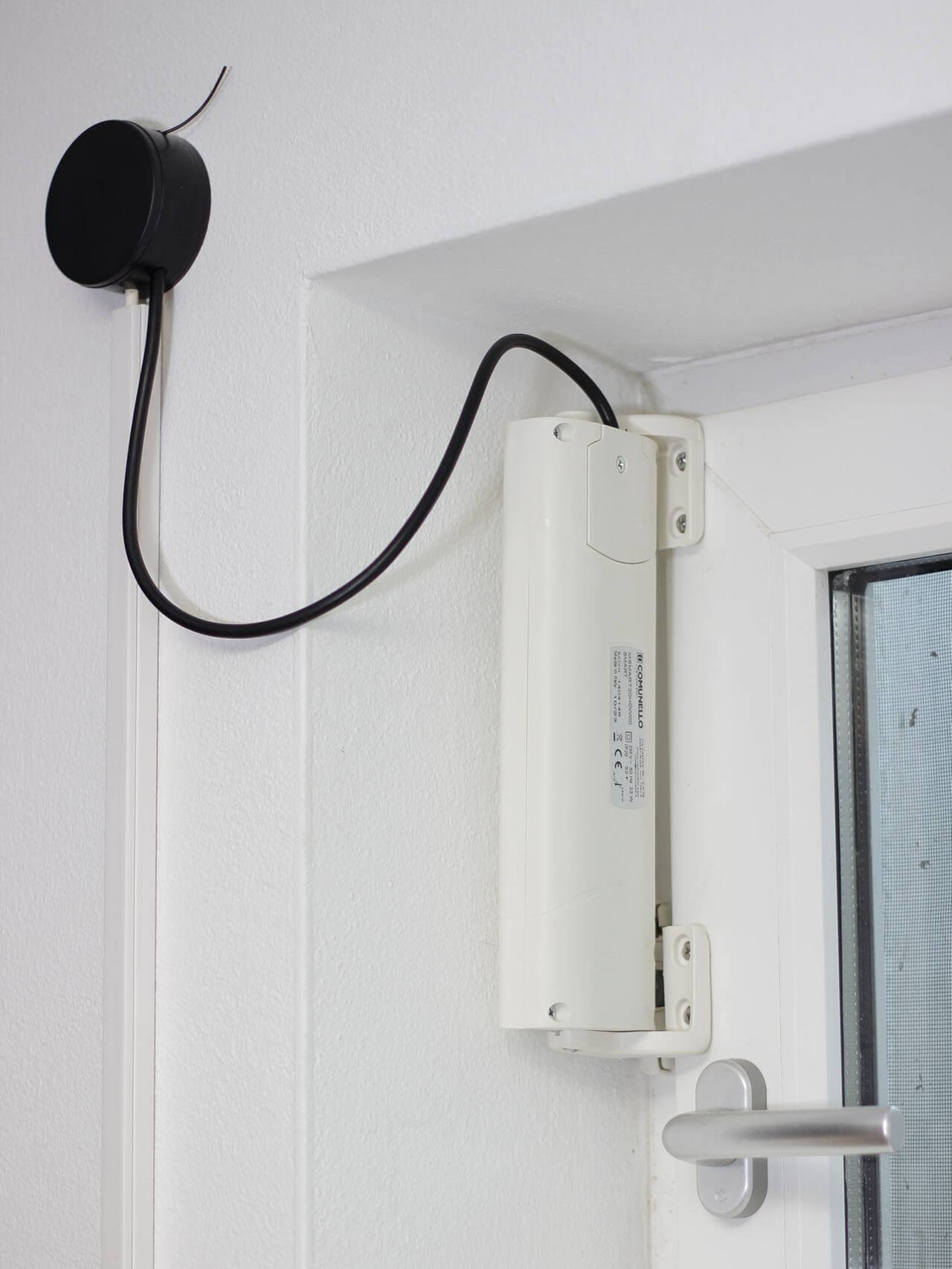Christian Doczekal, CEO at Doczekal Solutions e.U. in Austria, developed a system that cools his home during the summer with over 91% energy generated from his solar panels. He faced various challenges along the way — until he discovered Homey.
Before finding Homey, Christian explored other platforms to automate his home. He was unhappy with the limited device compatibility from known brands, the narrow range of supported device types, and outdated user interfaces.
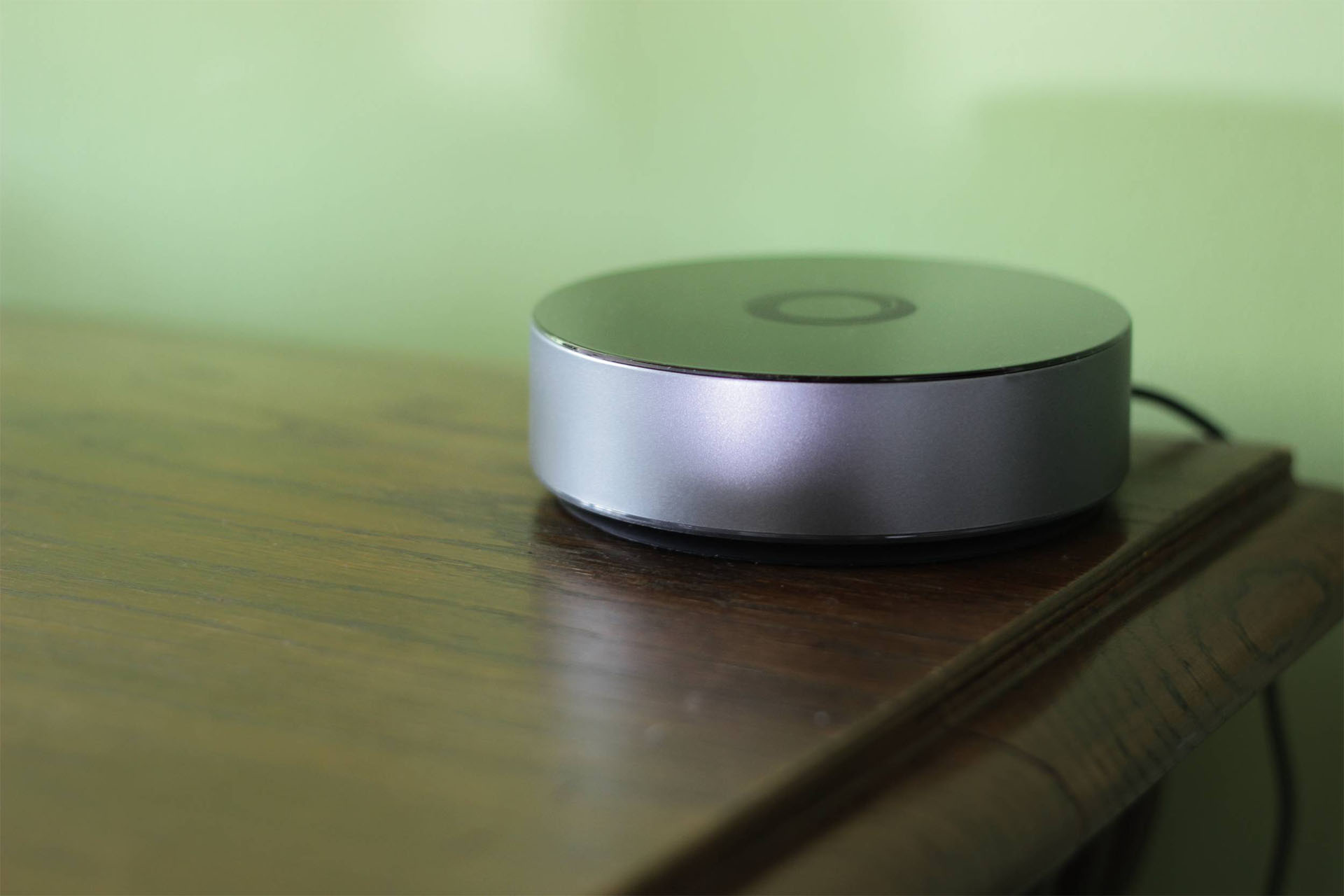
I don’t remember how I discovered Homey, but I was fascinated from the first minute I started using it. The number of supported devices was excellent, and I especially appreciated that I did not need extra hardware to control my devices. My air conditioner (Mitsubishi), photovoltaic inverter (Growatt), and robotic lawnmower (Worx) worked great once added to Homey. It really was the ultimate smart home hub I was looking for.
Christian Doczekal
Cool nights, open windows
As an energy guy, Christian always sought to achieve more. He participated in the smart cities demo project Cooldown Güssing, which aimed to reduce the overheating of Güssing’s homes in the summer. One of the project’s goals was to cool down homes naturally by using night ventilation with open windows instead of relying on active cooling solutions.
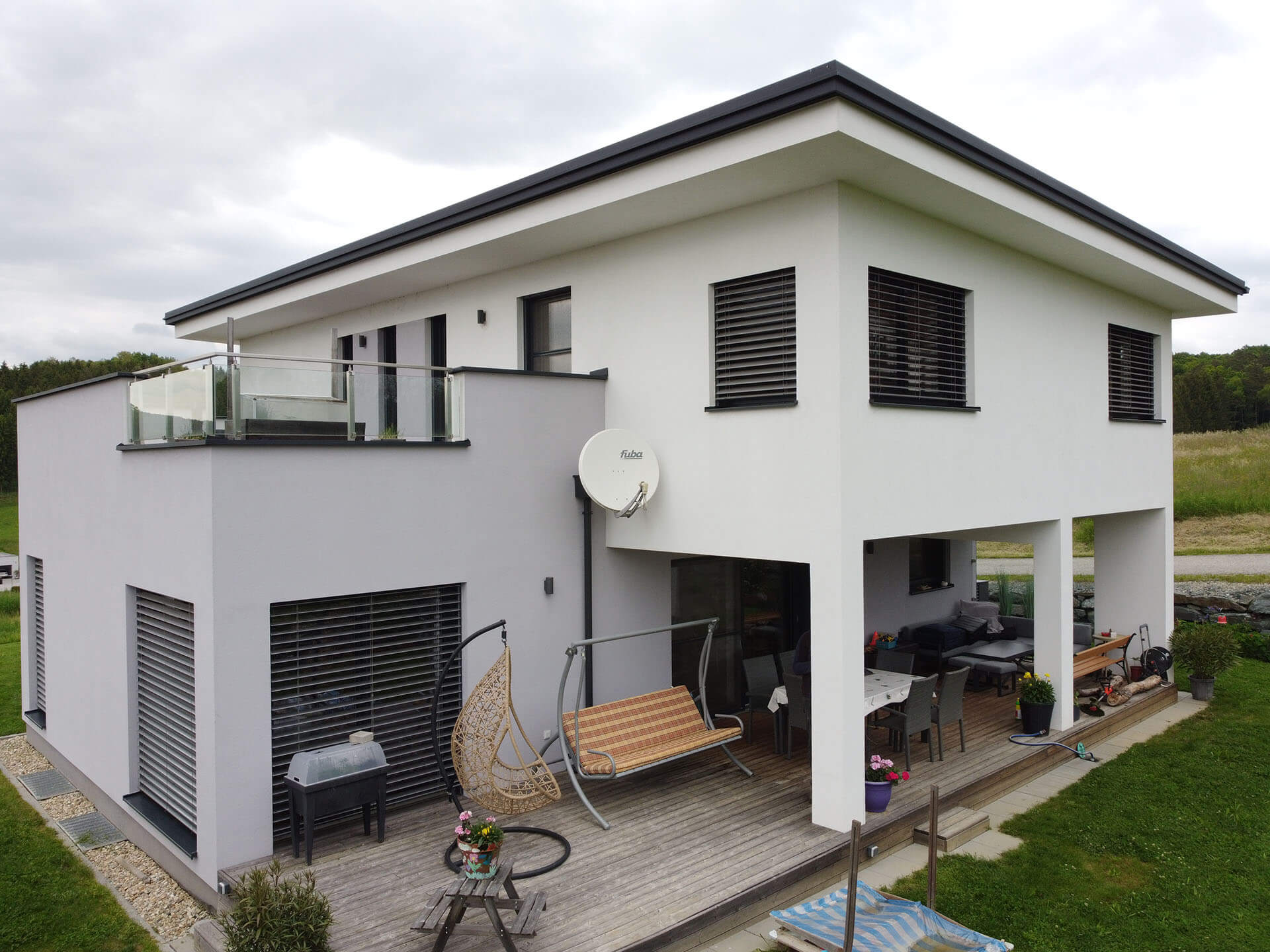
People frequently open or close their windows at the wrong time, either too early or too late. To solve this problem, Christian designed a Homey Flow that alerts people to open their windows when the outside temperature falls below 21 °C. When it becomes warmer than 21 °C in the morning, another Flow sends a push notification reminding people to close their windows. His smart speaker also announces the notification, ensuring everyone hears the message. Simple and effective.
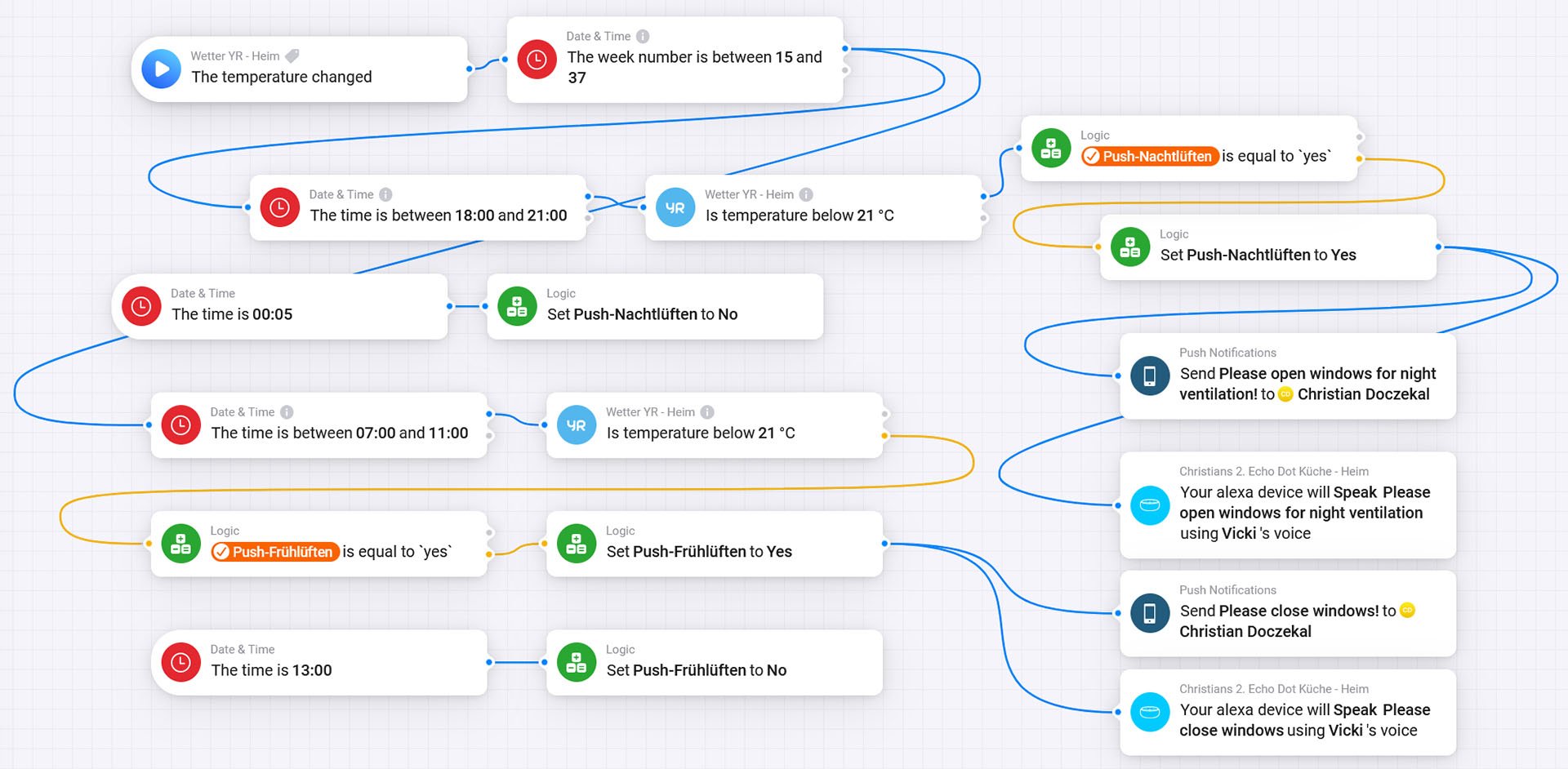
Despite this setup being semi-automated and still requiring user interaction, he found that naturally cooling homes during summer nights was very effective. It saved considerable energy. By gathering data from periods when no one was at home during the summer, such as vacations, he discovered a significant difference in indoor temperatures during the day simply by opening windows at night.
Sun-powered A/C cooling
The next challenge was optimizing the active cooling solution: the A/C. Although using the floor heating pump for cooling was also an option, Christian discovered that while it lowered the temperature, it didn’t reduce humidity, causing discomfort and sweating. This conclusion led him to choose the A/C for his active cooling system in his home instead.
The Cooldown Güssing project involved solar energy panel usage and optimization. Therefore, the next logical step was to run the A/C only when the panels generated enough energy to support its operation.
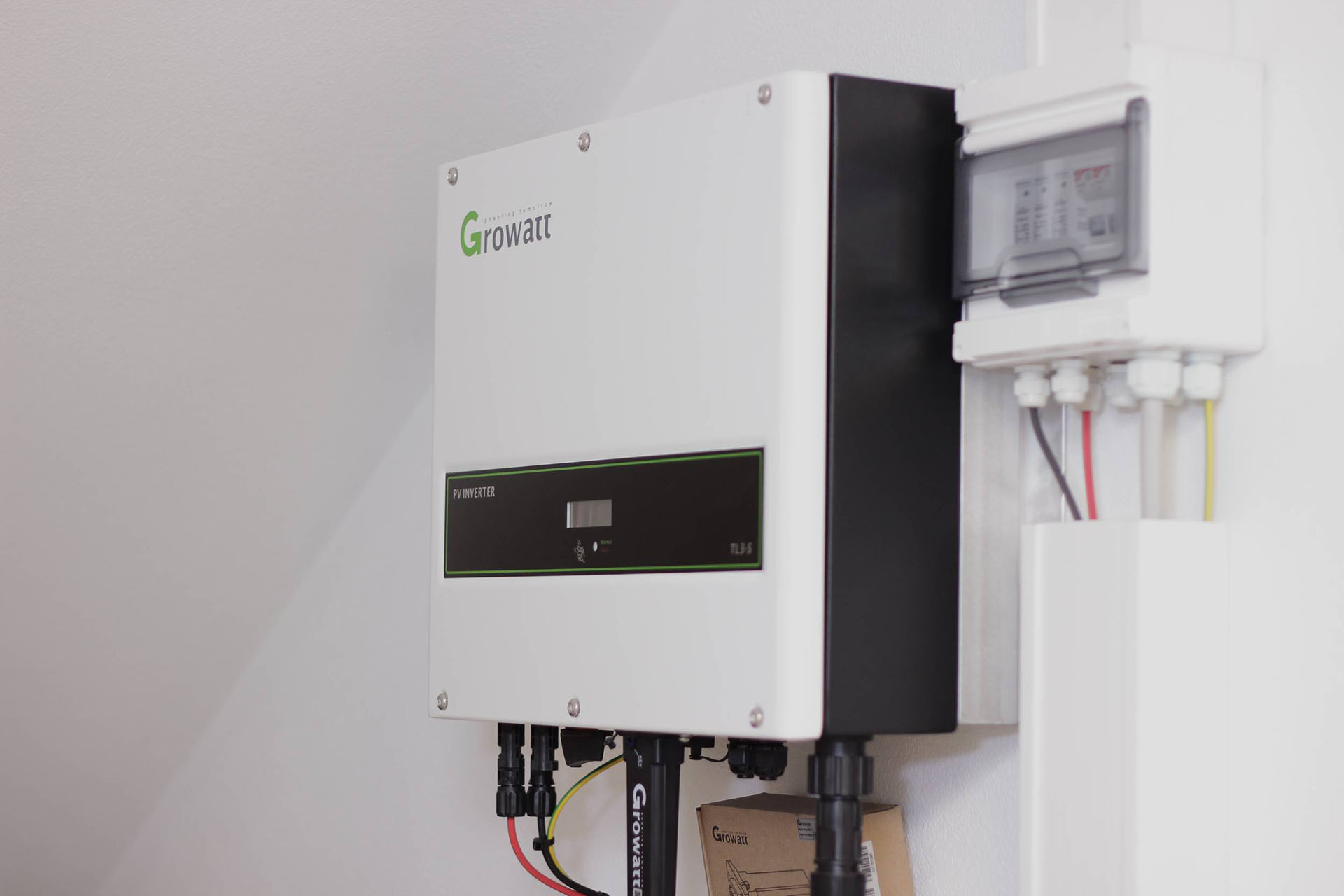
Christian’s A/C requires about 1 kW of power, while his house has a basic load of about 200 W. He created a Flow to automatically switch on the A/C for two hours when the indoor temperature is too high, and his PV system generates more than 1.3 kW of energy. He found that his PV system frequently generated over 1.3 kW of energy between 9:00 AM and 5:00 PM during the summer, allowing the A/C to run on free energy from the panels.
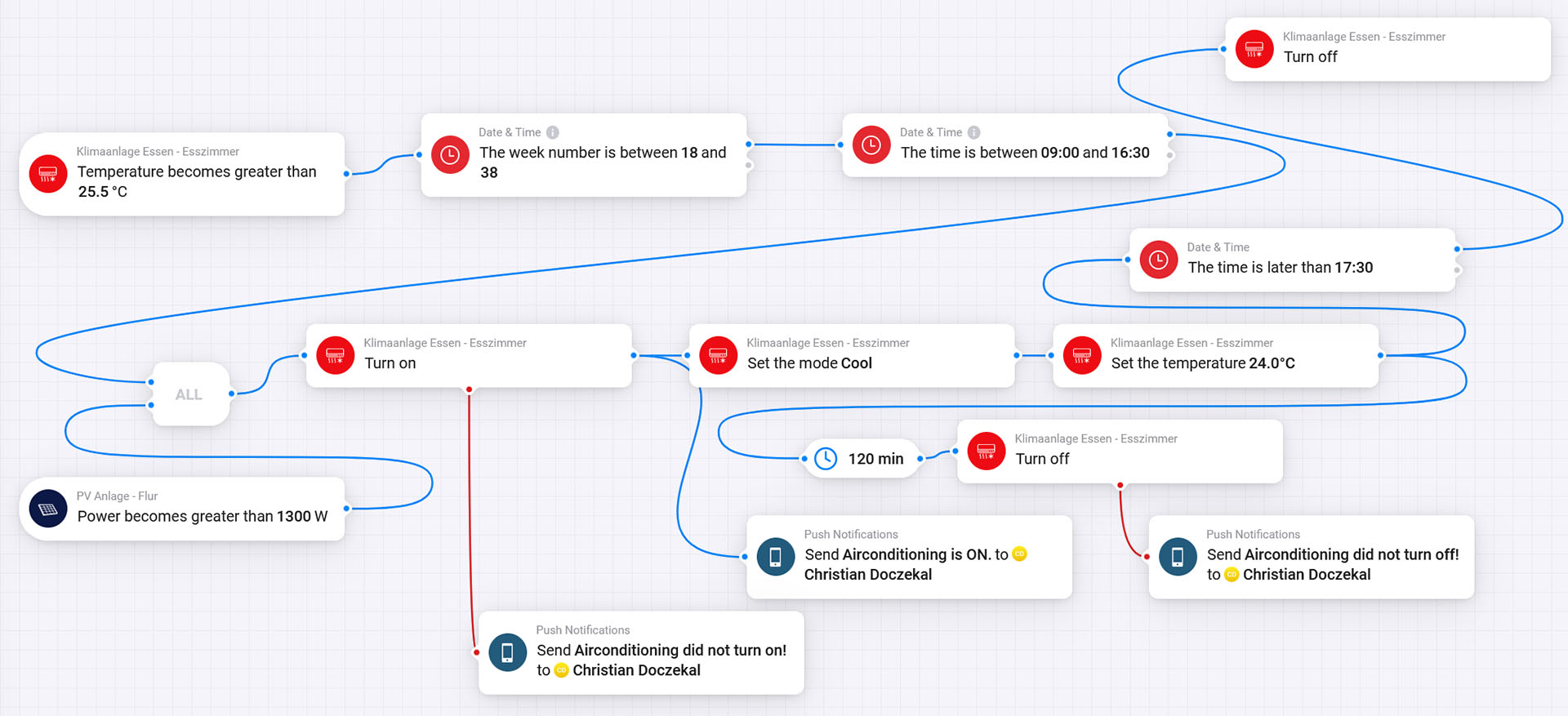
Christian added a simple, smart button for his wife to prevent the A/C from switching to the wrong mode when operated with the remote. This switch triggers the A/C to run for two hours when manually activated. He also uses the same button for heating with the A/C in the winter, conditioned by the outdoor temperature.
In 2022, this system covered 82% of the energy needs for the air conditioning cooling system. With some clever optimization, that number rose to 91% in 2023. Christian has set a goal of reaching almost 100% in 2024.
Keeping the central ventilation system in check
Christian’s home has a central ventilation system that operates year-round, ensuring each room has proper airflow. This system requires regular maintenance and health checks. He monitored the system's energy consumption by attaching a smart plug, typically ranging from 20 to 30 watts when the main fan was running.
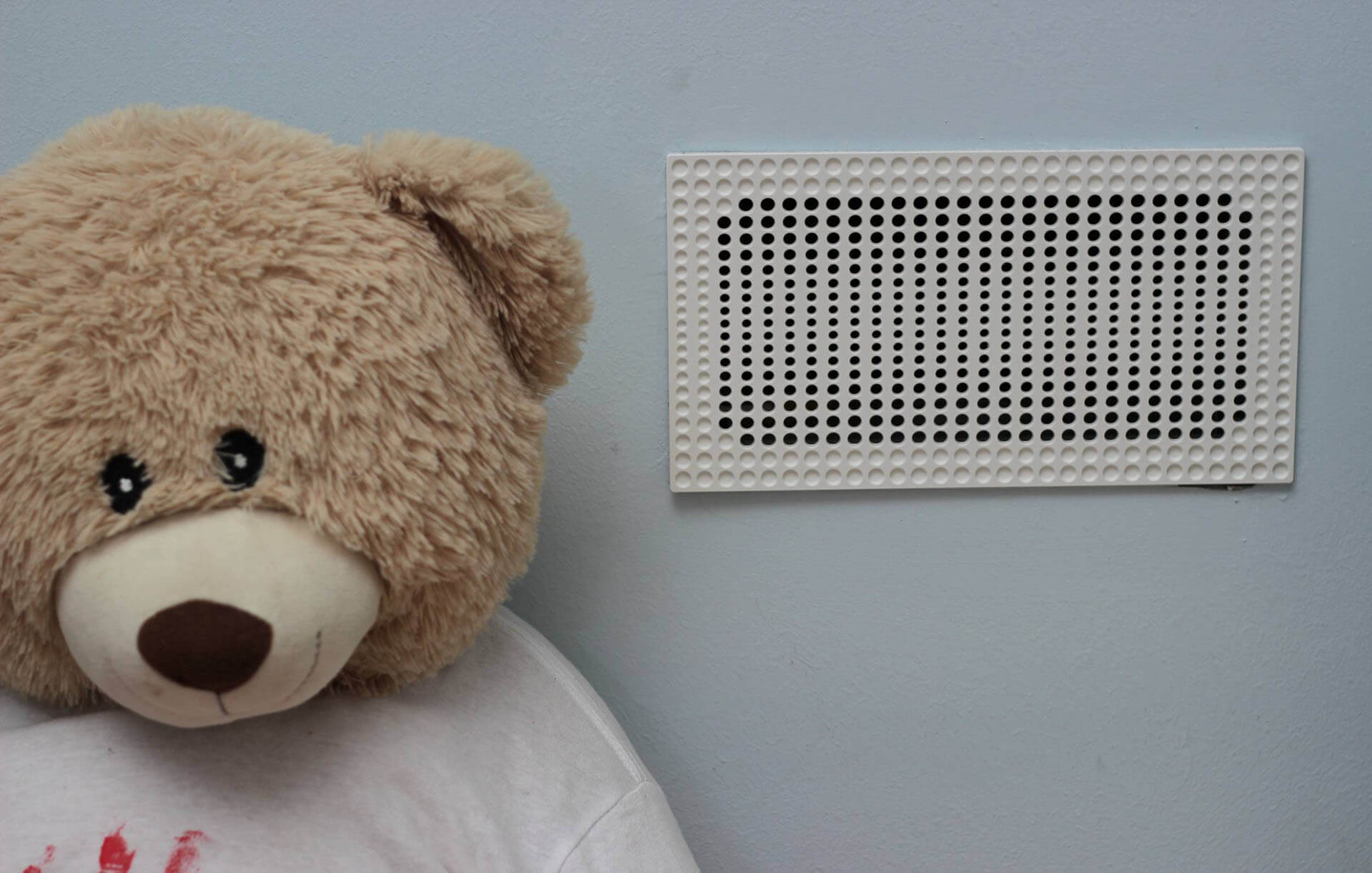
He cleverly deduced that an increase in energy consumption usually signaled one of two issues. Either the air filter was clogged and needed cleaning, or the fan bearings required replacement. Faulty bearings increased friction, straining the motor and causing it to consume more energy.
Therefore, Christian created a Flow in Homey, alerting him of any abnormal energy usage by the central ventilation system. This simple Flow helps prolong the system’s lifespan and prevents minor issues from becoming big problems.
Preventing mold growth in the basement
When they built Christian’s house, the basement was not ventilated enough, eventually leading to mold growth. Christian developed an automatic ventilation system using Homey and some additional hardware to prevent this. He installed a window driver connected to a Fibaro roller-shutter relay, enabling the window to open and close four times daily.
The window opens only when the outside temperature is lower than the inside, a condition crucial for effective dehumidification. This approach ensures that lower outside temperatures help reduce indoor humidity while preventing higher outside temperatures from introducing moisture into the room.

The outside temperature also influences the timing and duration of the window openings. For example, in winter, the window is ventilated for just ten minutes, whereas in summer, it remains open much longer. If this setup proves insufficient during hot summers, he has a dehumidifier connected to a smart plug that runs when sufficient photovoltaic power is available.
Beyond energy savings
While saving energy with Homey was his primary focus, Christian also developed some interesting Flows to simplify his life. “Alexa, good morning!” triggers a Flow that opens up his Venetian bedroom blinds, allowing him to start his morning bright and light.
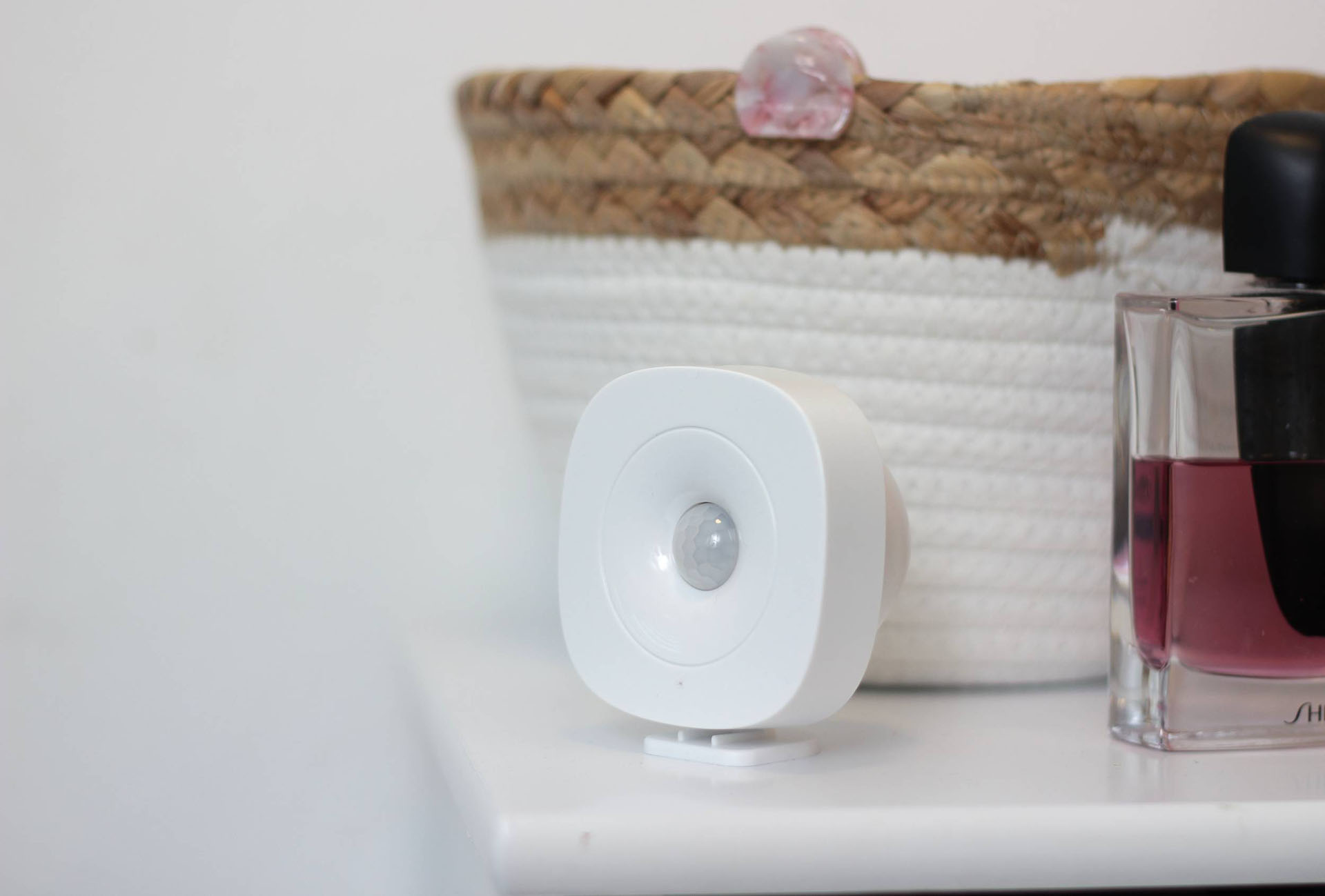
By installing a Frient motion sensor in his bathroom, he could trigger the bathroom light and enhance privacy by automatically closing the Venetian blinds. Interestingly, he conditioned this Flow by using the energy reading from his solar panels. You can’t see into his bathroom from the outside whenever the sun is bright. When it’s darker, indicated by the lower energy production of the energy panels, you can see into the bathroom, which is when his blinds get closed automatically.
Whenever he steps in for a shower, he triggers a Flow with his Alexa speaker that tilts the Venetian blinds in the bathroom for twenty minutes. He calls Alexa to switch on his hot water to ensure he uses hot water from his heating boiler. This command turns on the circulation pump via a smart plug for two minutes, providing hot water when he’s ready for his shower.

Fighting fire
Christian is also a volunteer firefighter in his hometown and decided to bring Homey to the station! He created a Flow that monitors the extreme conditions of potential vegetation fires. Whenever the temperature is above 30 °C, wind speed is higher than 30 km/h, and the humidity is lower than 30%, the firefighters are alerted with a WhatsApp message.
With the station already using a Nuki lock, one of his next ideas is to automate the unlocking and opening of the door during emergencies. He also intends to install a smart plug and monitor the energy consumption of the air compressor that charges the firetrucks. An energy spike would indicate a leak in the line somewhere, alerting Christian with a push notification via Homey.
Get in touch
If you want to learn more about Christian’s Homey setup, please feel free to email him. If you are in his area, he might also be able to assist with your Homey setup and installation.
Homey makes saving energy a breeze for people like Christian. Join the hundreds of thousands enjoying a smarter, more efficient home. Discover how Homey can enhance your smart home experience.








